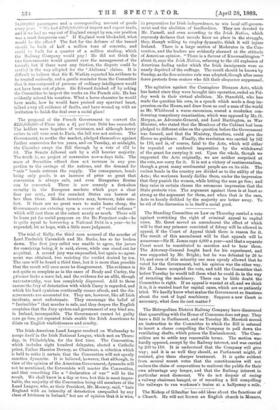The trial of Kelly, the third man accused of the
murder of Lord Frederick Cavendish and Mr. Burke, has so far broken down. The first jury called was unable to agree, the jurors for convictien being, it is said, eleven, while one stood out for acquittal. A second jury was empanelled, but again no agree- ment was obtained, two resisting the verdict desired by ten. The case will be heard a third time, but it is more than possible that the result will once more be disagreement. The evidence is not quite so complete as in the cases of Brady and Curley, the yrisoner looks a mere lad, and the evidence for an alibi, though untrustworthy, was less completely disproved. Add to these causes the fury of detestation with which Carey is regarded, and -which his hard cynicism continually rouses afresh, and the dis- agreements are accounted for. They are, however, like all Irish incidents, most unfortunate. They encourage the belief of " Invincibles " that murder is safe, and they deepen the English suspicion that the Jury system and government of any kind are, in Ireland, incompatible. The Government cannot let guilty men go free, yet repeated trials enable the Irish Americans to dilate on English vindictiveness and cruelty.


































 Previous page
Previous page